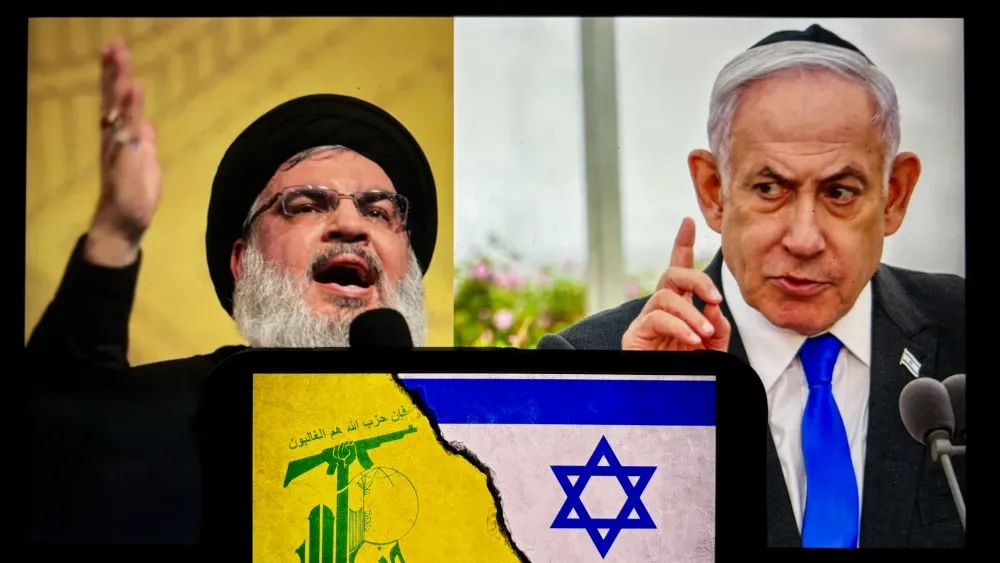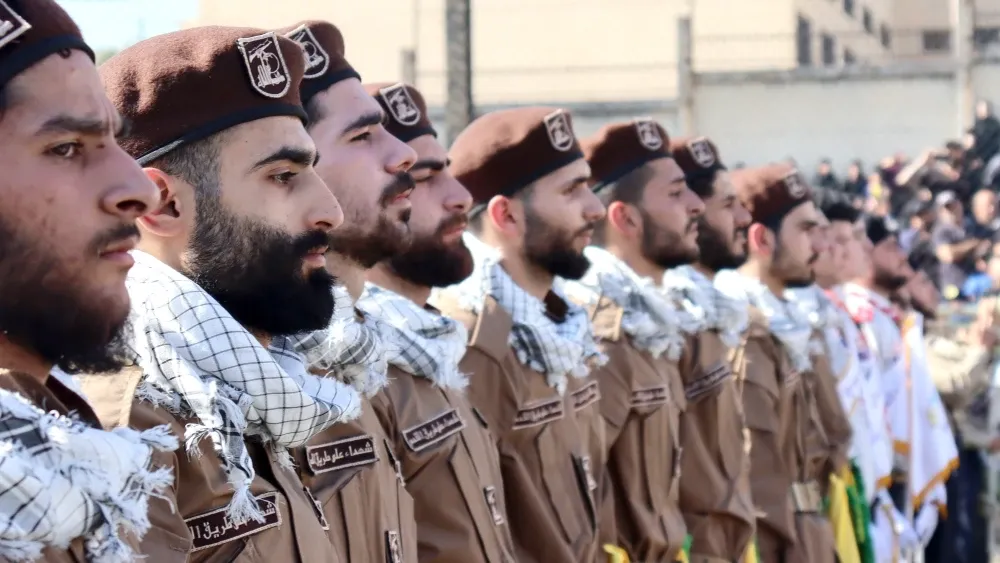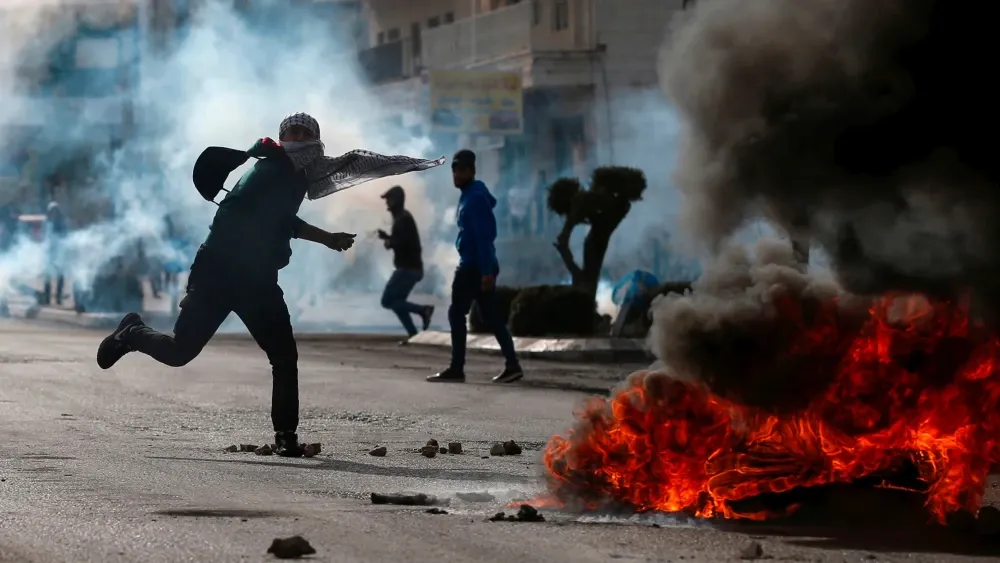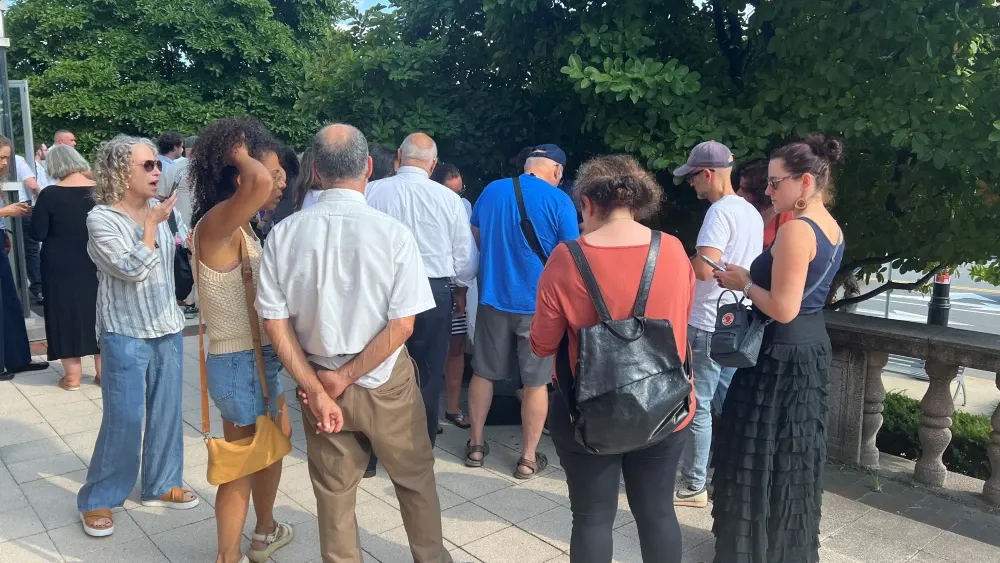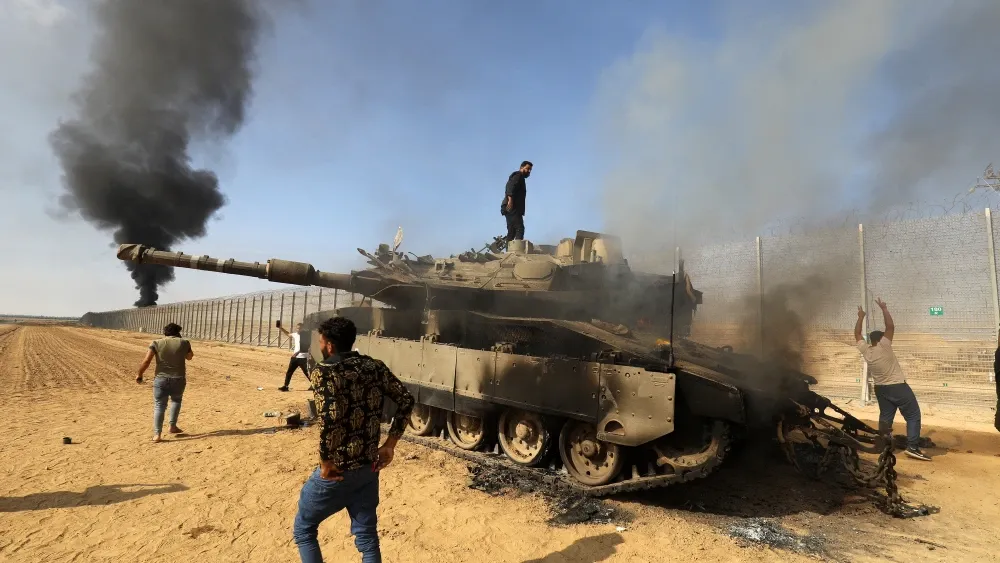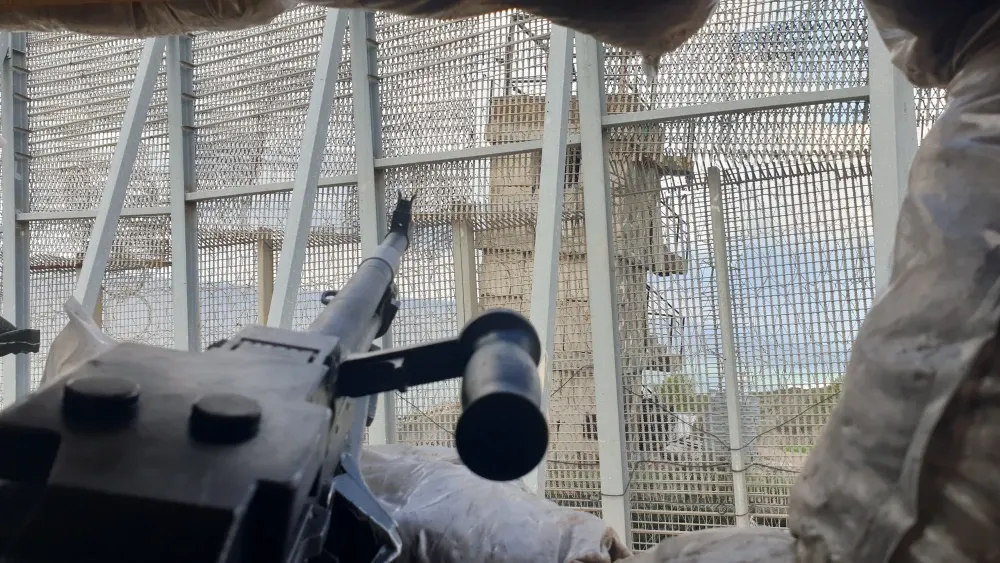| ||
 | ||
| Nasrallah's Fall and West Bank on the Brink By Gregg Roman ● Sep 27, 2024 Smart Brevity® count: 4 mins...1103 words Hezbollah Secretary-General Hassan Nasrallah is dead, reportedly killed by an Israeli airstrike. This edition examines the consequences of Nasrallah's death, Israel's ongoing operations against Hezbollah, and escalating tensions in the West Bank. We analyze Israel's recent intelligence successes in Lebanon, contrasting them with failures in Gaza, and discuss strategies to deter Hezbollah. MEF also covers a controversial self-defense incident involving a pro-Israel activist in Massachusetts. Let’s dive in. | ||
Nasrallah’s Death as a U.S. LessonAn Israeli airstrike reportedly killed Hezbollah Secretary-General Hassan Nasrallah, decapitating the group. Why it matters: The U.S. and European policymakers often overestimate the benefits of dialogue, but Nasrallah’s death underscores the importance of decisive action against irredeemable enemies. The big picture: Israel’s aggressive ten-day campaign, targeting Hezbollah’s leadership, shows that eliminating terror threats is achievable and can avert larger conflicts. Details: Diplomats and human rights activists may criticize, but history shows that the absolute defeat of odious enemies, like in WWII and against the Islamic State, leads to lasting peace and stability.
Between the lines: Israel’s actions are not just about military strategy but also political signaling.
By the numbers: In the ten-day campaign, Israel targeted over 15 senior Hezbollah leaders and destroyed multiple bunkers.
| ||
Israel’s Ongoing Battle with HezbollahThe IDF has been intensifying its attacks on Hezbollah, despite the group’s significant remaining capabilities. Why it matters: Hezbollah remains a formidable adversary, equipped with advanced anti-tank missiles, mines, drones, and an extensive tunnel network. Their full arsenal is yet to be deployed, posing a serious threat if the conflict escalates to a ground invasion. The big picture: Hezbollah has evolved into a semi-army over the past 18 years, enhancing its rocket, missile, and drone capabilities. This transformation makes it a more dangerous opponent than Hamas. What’s next: If Israel proceeds with a ground invasion, the IDF will face complex challenges, including Hezbollah’s advanced anti-tank systems and well-prepared defensive positions. This will likely result in a protracted and intense conflict. | ||
Is the West Bank Next to Explode?Violence in the West Bank has reached levels not seen in years, with increasing insecurity spilling into Israel. Why it matters: The instability could stretch Israel’s military resources thin and empower Hamas over the Palestinian Authority.
The big picture: Israel must consider decentralizing governance in the West Bank to empower local leadership and disrupt corrupt elites.
What’s next: Israel faces a choice to maintain the status quo or implement change. Continuing past strategies may lead to greater conflict, threatening not just Israel but also regional stability, including Jordan. | ||
Pro-Israel Activist Charged After Self-Defense IncidentScott Hayes, a pro-Israel activist and U.S. Army veteran, was charged with assault and battery after defending himself from an attack by anti-Israel activist Caleb Gannon in Newton, Massachusetts. Why it matters: This incident highlights the increasing violence and hostility towards pro-Israel supporters in the U.S., raising concerns about the safety of Jewish and pro-Israel communities.
Details: On September 12, Gannon attacked Hayes during a pro-Israel rally, leading Hayes to defend himself with a licensed firearm.
What’s next: The controversy continues as supporters rally for Hayes’s release and legal defense. Legal and social implications: The legal battle ahead for Hayes will likely become a focal point for discussions on self-defense laws and the treatment of pro-Israel activists in the U.S.
| ||
Israel’s Stunning Intelligence Successes in Lebanon Highlight its Grave Failures in GazaIsrael’s string of recent successes against Hezbollah — alongside operations widely attributed to the Jewish state — are the products of precise intelligence on the inner workings of the Lebanese terror group. Why it matters: These successes underscore a stark contrast with the intelligence failure that led to Hamas’s devastating attacks on October 7, highlighting the consequences of misallocated focus and resources. The big picture: Over-prioritizing the Hezbollah threat led to significant oversights in Gaza, leaving Israel vulnerable to Hamas’s unexpected offensive. What’s next: Israel must reassess its intelligence strategies to ensure comprehensive coverage and prevent future lapses that could have catastrophic consequences. | ||
Israel Can Deter Hezbollah and Strengthen the BorderRecent intelligence successes have severely incapacitated Hezbollah’s ability to coordinate as a conventional army, forcing them to revert to vulnerable communication methods. Why it matters: Israel’s strategic advantage over Hezbollah is critical for maintaining regional stability and preventing a full-scale conflict.
Driving the news: Iran’s leadership, while publicly condemning Israel, is internally divided on direct military retaliation, favoring strategic restraint to avoid economic and diplomatic fallout.
By the numbers: The recent intelligence operations have resulted in the interception of over 70% of Hezbollah’s communications. | ||
| As MEF Dispatch readers, it’s crucial to stay informed about the rapidly evolving dynamics in the region. Nasrallah’s death highlights the need for decisive actions, while the rise of the “TikTok Generation” of militants and the weakening Palestinian Authority call for innovative governance strategies. Israel’s strategic decisions in the West Bank and against Hezbollah will shape the future security landscape. Stay engaged and vigilant as these developments unfold. Gregg Roman | ||
| Feedback Please share your thoughts on this edition. Was this edition useful? Your responses are anonymous | ||
| Powered by | ||
| ||


